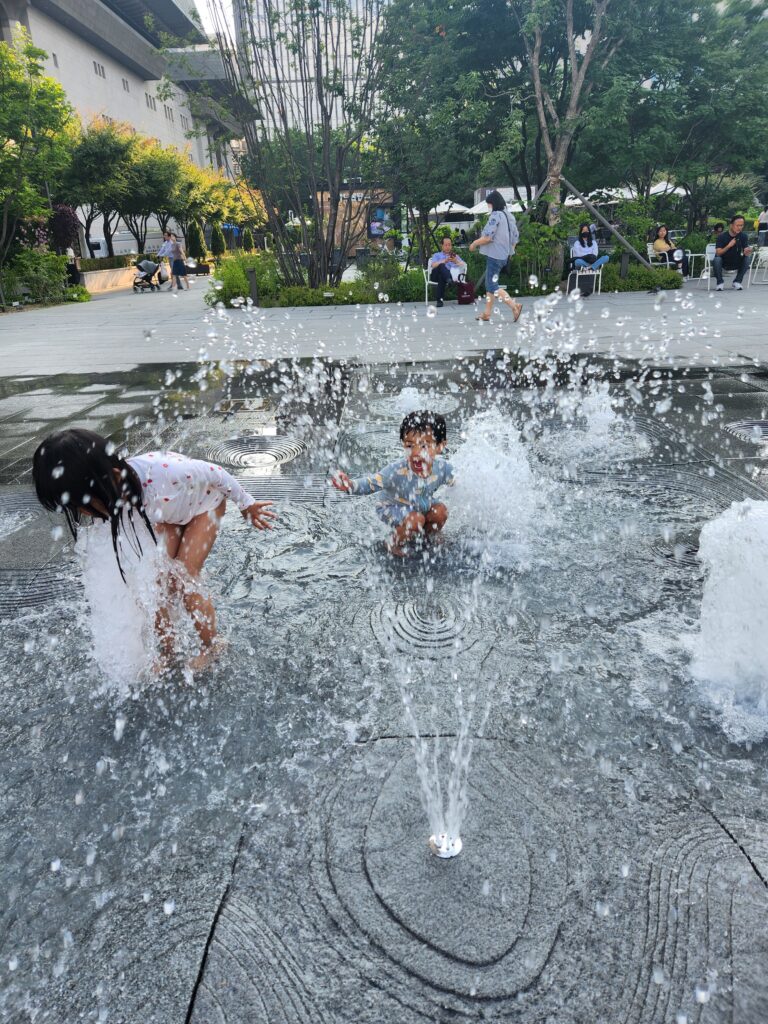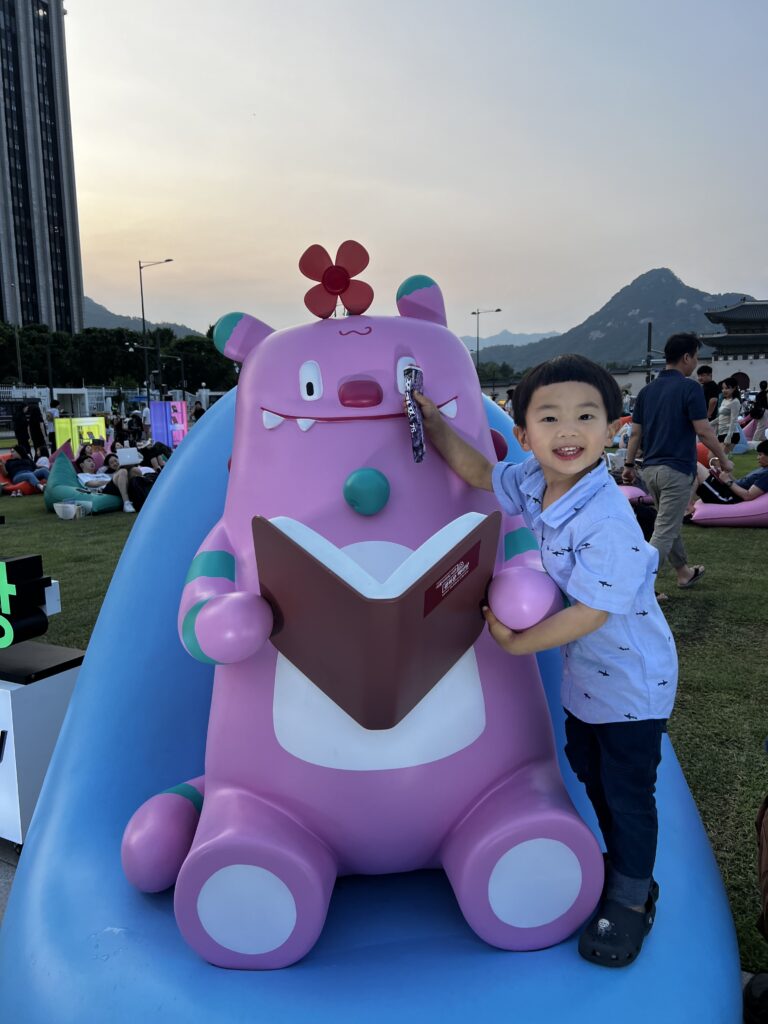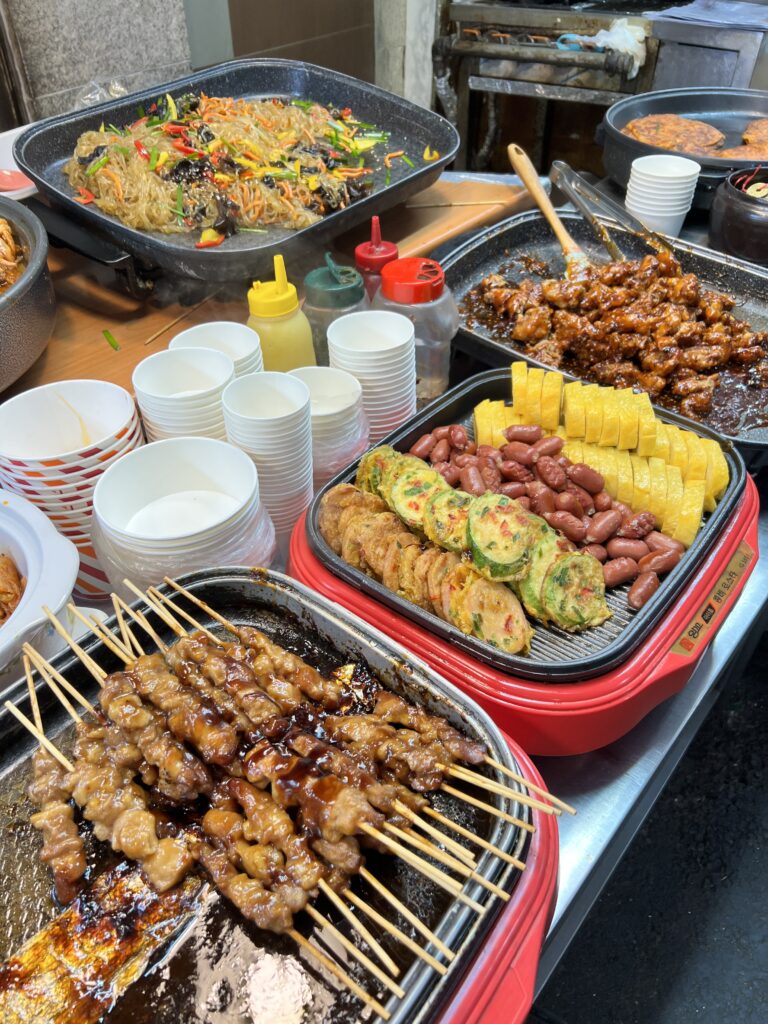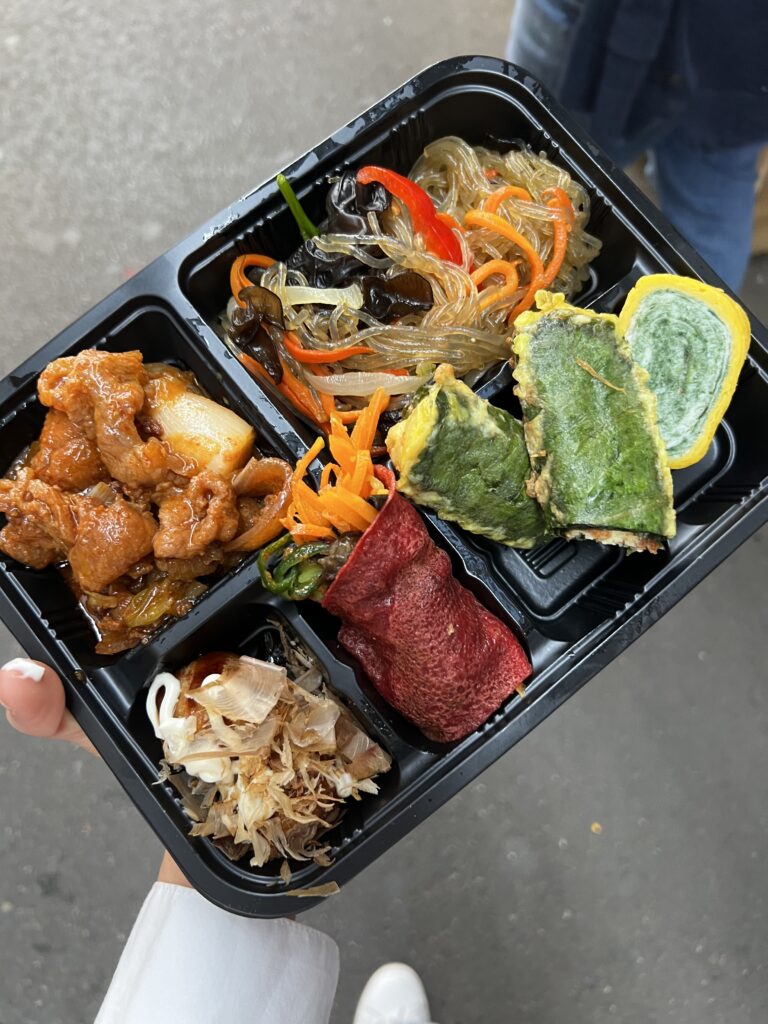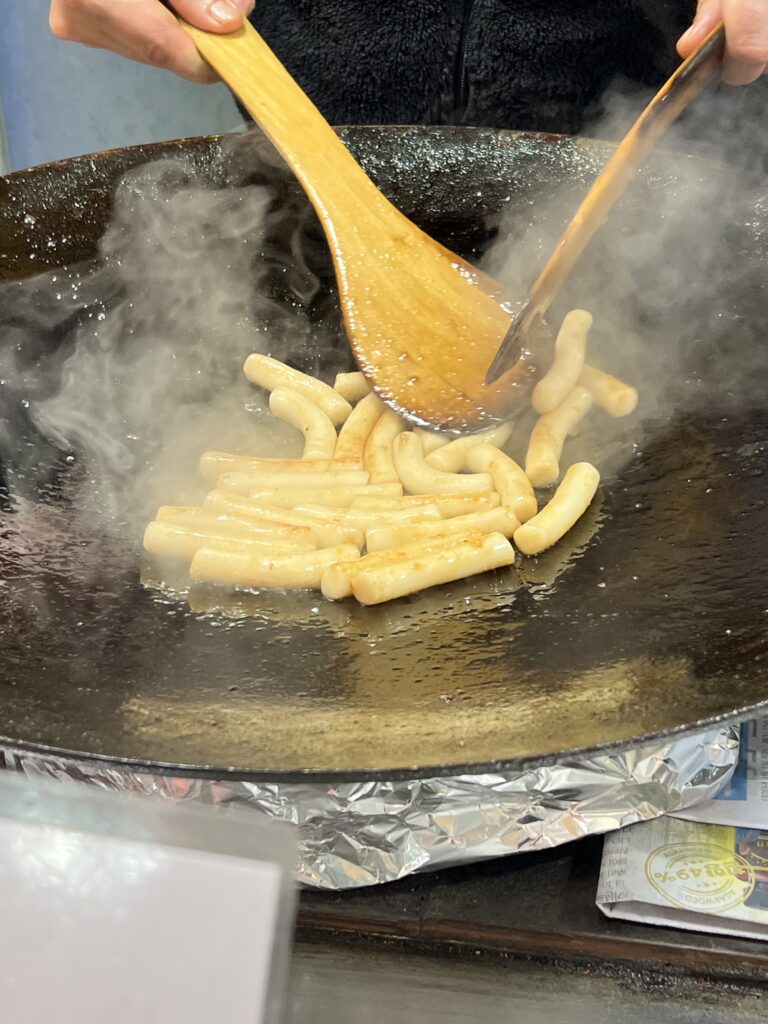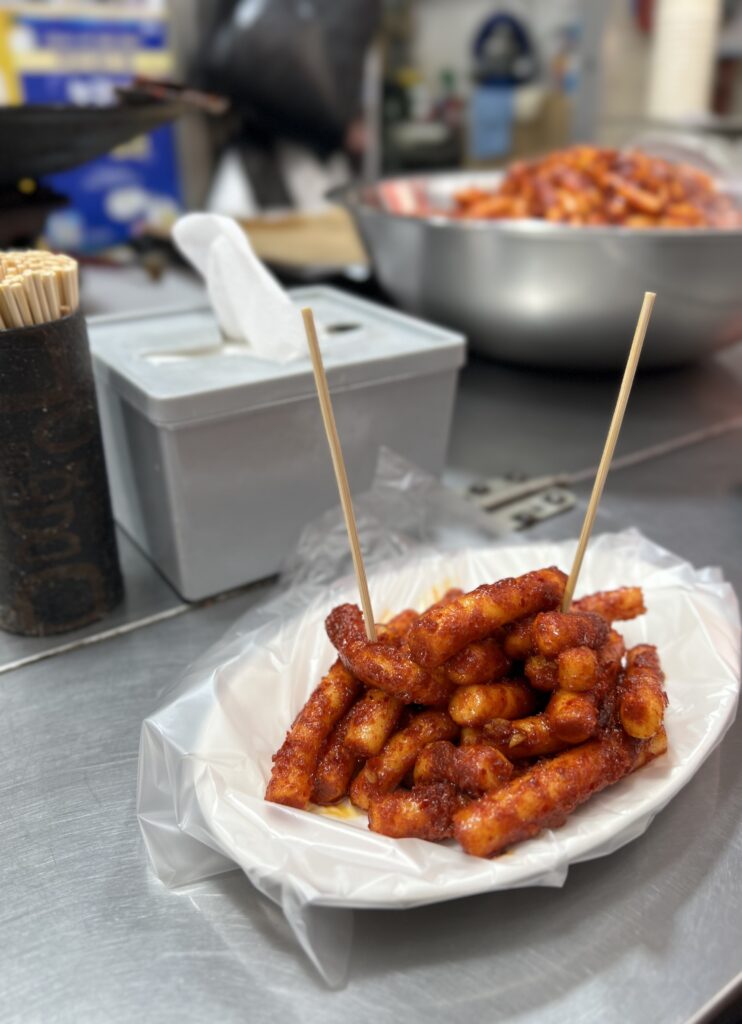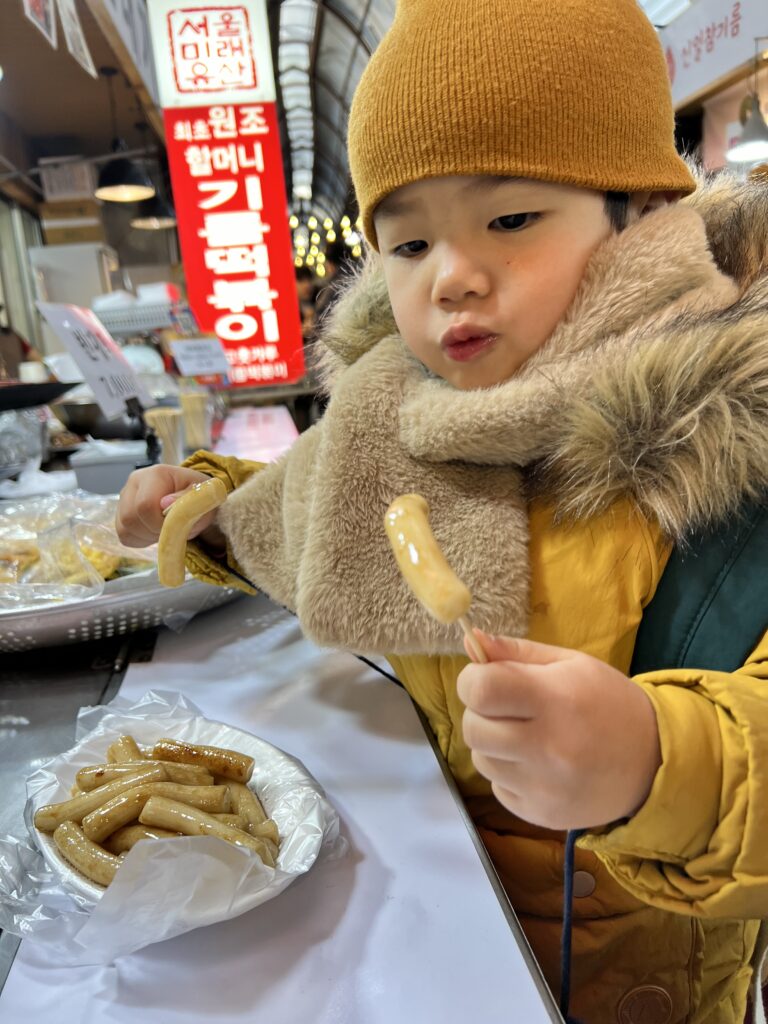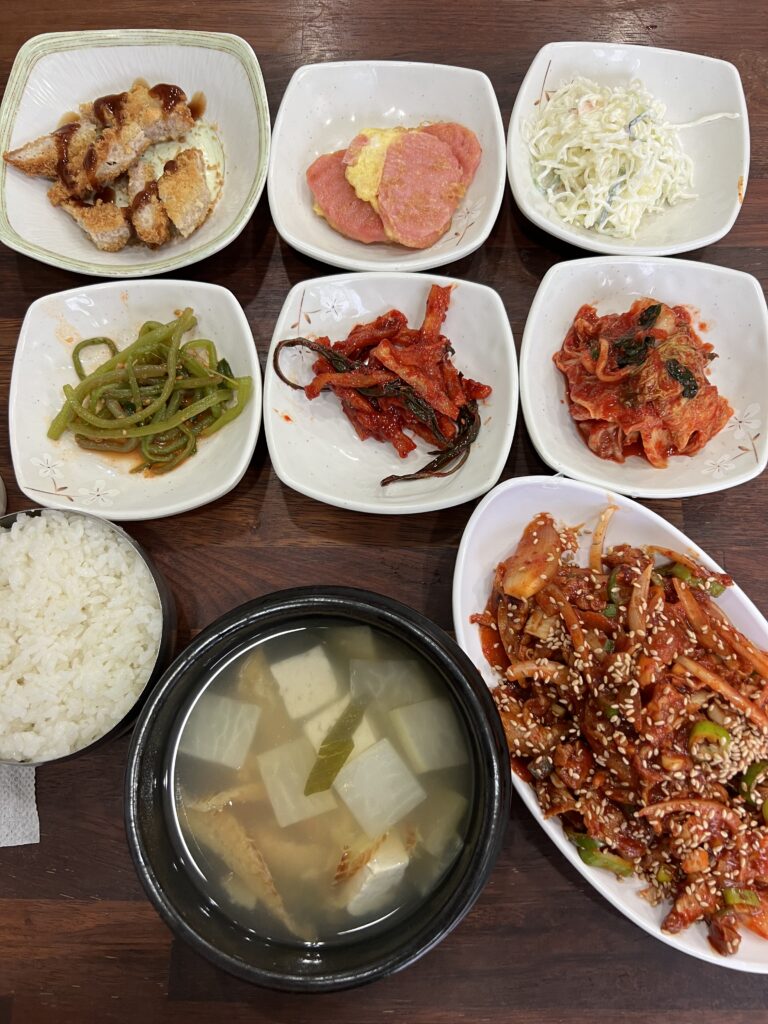Seoul, South Korea
If Seoul ISN’T on your bucket list, you should add it—and then move it to the top! South Korea’s bustling capital city has amazing culture, fascinating history, mouthwatering food, and K-pop everywhere. South Korean local, Sara, has some travel tips to make your visit to Seoul extra special and EXTRA EXTRA delicious.

Hi, I’m Sara! My family and I welcome you to Seoul, South Korea. We are a half American, half Korean family of 4. I am adopted Korean, raised in the States and my husband is from Korea. We met while I was teaching English in Korea back in 2011. We moved back to the States to start a family and lived there for 8 years. We wanted our children to experience Korean culture and learn the Korean language, so we moved to Seoul last year, where we currently reside. Let’s take a tour of Seoul! There’s so much to do (and eat!) here, we can’t wait to show you around.
Gyeongbokgung Palace
Gyeongbokgung is Seoul’s largest and probably most famous palace. It was built in 1935 and is the official palace of the Joseon Dynasty. Surrounding the palace are many hanbok rental shops. These days, it’s very popular to dress up in a rented hanbok and visit the palace to complete the experience. Palace entry is also free if you are wearing hanbok! The palace grounds are expansive, and our family’s favorite spot is the pavilion and pond. Last year, we rented hanbok and hired a photographer to take some family photos on the grounds of Gyeongbokgung—a really special memory! Many tourists love to visit Gyeongbokgung, especially to watch the changing of the guards.

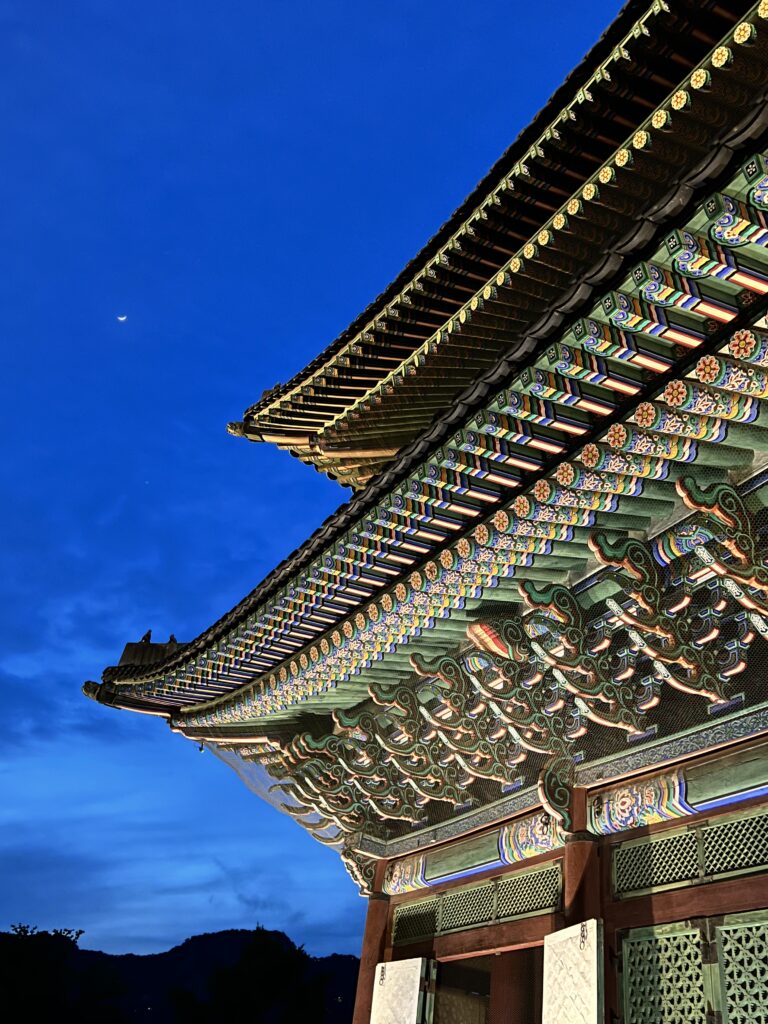

Gwanghwamun Square
Gwanghwamun Square is in the center of Seoul, just in front of Gyeonbokgung Palace. There is always something fun happening in this area—festivals and events, markets, food trucks, outdoor libraries, live performances, and more. It’s also where the famous King Sejong statue is. He’s known as one of the greatest rulers in Korea and creator of the Korean alphabet, hangul. Particularly on summer weekends when we have nothing planned, our family heads to Gwanghwamun Square to picnic and play in the water fountains.
Tongin Market
This is a much smaller and lesser known market in Seoul and it offers a certain olds school charm. Unique to Tongin market is the Korean lunchbox cafe. You purchase coins and they give you a lunch tray that you fill up with various food from all the different vendors using the coins as currency. It’s a fun and perfect way to sample a bunch of Korean street foods. I walk through the market early in the mornings and I love seeing all of the vendors preparing their food stalls for the day.
When eating street food in Korea or at a market, it’s customary to stand or sit at the food stall to quickly eat rather than eat while walking. It's never fancy, and if there is seating, it's typically small plastic stools in tight spaces. If you're in Korea, I recommend trying at least once.
Food: Girim Ddukbokki
Ddukbokki is a dish that contains glutinous, chewy rice cakes that are usually served in a spicy red sauce. There is a non-spicy, soy sauce based version as well, but the former is more common. It is one of Korea’s most popular street foods—you’ll see it on many street vendors and at small snack-type restaurants. In our neighborhood, there is a local market that is known for their girim ddukbokki—this version doesn’t have a sauce and is instead fried and slightly sticky. They have both spicy and non-spicy versions.
Food: Baekban
A typical Korean meal is known for the wide array of side dishes eaten with the main course. The side dishes are called banchan and there are many, many different kinds featuring types of kimchi, vegetables, meat, and seafood. Baekban literally means white rice—it’s a classic Korean meal consisting of rice, soup, and many kinds of side dishes. It is hearty, healthy, and filling. It’s probably what most Koreans think of when they think of a home cooked meal or Korean comfort food Typical baekban restaurants will change the main menu and side dishes daily. There are a few paik ban restaurants in our local vicinity, and they are always crowded at lunch times.
Food: Pat Bingsu
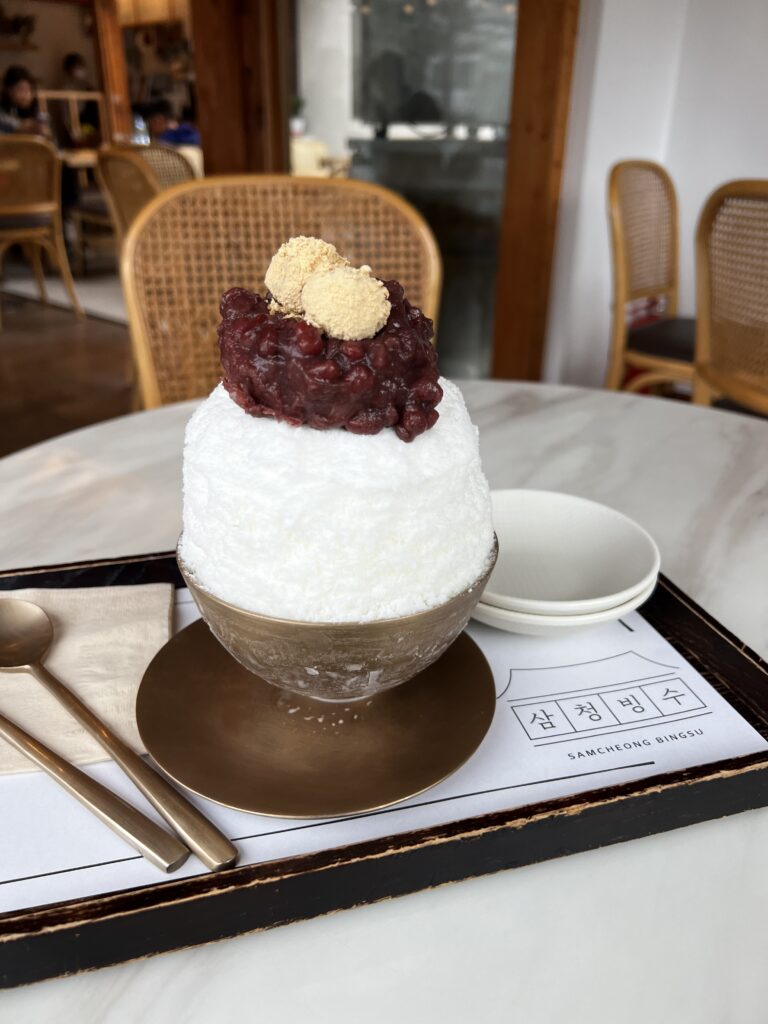
One of the most popular things to eat during a Korean summer is patbingsu. Bingsu is a dessert made of shaved ice and milk and is topped with either sweet red beans (pat- the most traditional flavor) or fruit. The icy confection dates all the way back to the Joseon Dynasty where they would combine crushed ice with various fruits. In the summer, many cafes and bakeries sell bingsu. Our family's favorite flavors are red bean and mango. Before eating it you mix it all together. It’s sweet, light and so refreshing!

